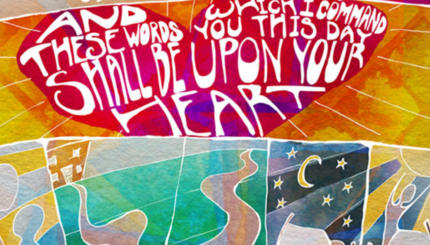I received a hate call two weeks ago.
It came right after I had had the honor of offering an invocation at our local Memorial Day celebration. The gist of my prayer was people died for freedom, and as the living we honor the dead by not taking freedom away from others. And then I said it…”regardless of religion, color, sexual orientation or financial standing” I live in the South, and I knew saying “sexual orientation” meant being brave. The next day, I got the call.
The caller was polite, genteel, intelligent and still anti-gay. He didn’t like that I had talked about homosexuality. It’s in our faces all the time, he said. How could you misuse the Memorial Day invocation as a political pulpit? The conversation weighed heavily on me. It was upsetting to me to be confronted with someone else’s hatred. And more upsetting to me that I was ultimately powerless to sway him of his opinion and move him away from his vehemence.
And a few days later, the massacre at the Pulse night club in Orlando happened.
God willing, I will be speaking at a community candlelight vigil hosted our local LGBTQ group on Sunday evening. “Wear a bulletproof vest” was the comment from one of my friends. Funny, because wearing a bulletproof vest to a candlelit vigil is a ridiculous idea. Not funny, because people are dying.
The hate call and the vigil stand as bookends around this completely confounding act of violence and hatred as I, along with the rest of the world, am trying to make sense of it all. And here I am writing this piece for My Jewish Learning. I want to be brilliant and inspiring and say something really smart that somehow cuts through the fog of total incomprehensibility. But I don’t think I will be able to do that because I am also lost and confused wondering when did it all turn so sideways and how did we become a people who turn on one another in the name of God using weapons causing massive destruction.
There are those who can tell you about policy and steps in the political process to change our gun laws. And there are those who can talk about the issues around hate: Islamophobia, homophobia or the issues around ISIS or the protecting of people’s rights to carry weapons seemingly at any cost. But these are not my things to talk about. I want you to know that I got a call last week that was small in comparison to the violence at Pulse. But it was violent nonetheless and part of the same river of hatred, judgment and bigotry that seems to be the flowing undercurrent of world events these days. And I want to know how to stop it.
I know we need the legislation and we need the understanding to make this stop. I think we also need to do more to be different less. Many of my colleagues have been writing beautiful articles and poetry linking the Pulse nightclub shooting with Shavuot, the Jewish holiday celebrating receiving the Torah at Mount Sinai, as holiday was celebrated at the same time as the shooting was occurring. I am especially thinking of two lines of Torah these days -love your neighbor as yourself (Leviticus 19:17) and love the stranger as yourself (Leviticus 19:34). Either way, Torah is clear, we are required to love everyone. The people we know, the people we agree with, the people who think like we do just as much as those who don’t. Period.
In Rachel Naomi Remen’s book, Kitchen Table Wisdom, she shares the following story of a conversation between a man, Yitzhak and God: “…I say to Him, ‘God is it okay to luff strangers?’ And God says to me, ‘Yitzak, vat is dis strangers? You make strangers. I don’t make strangers.’”
The line of Torah text, to love the stranger, is therefore arguably superfluous. Strangers are a human convention not a Godly one. But the line is there in the Torah anyway to remind us that even when we think someone is a stranger, someone is different, other, less than or even bad because of their difference, that it is just untrue. We are all God’s creatures. None of us any stranger than the next.
So in the days to come as we sign petitions and learn what we can about the many varied issues at hand, I hope we all remember our neighbors; the ones we know and, even more so, the ones we don’t. To love the stranger until they aren’t so strange anymore.
Torah
Pronunced: TORE-uh, Origin: Hebrew, the Five Books of Moses.
Yitzhak
Pronounced: eetz-KHAHK, Origin: Hebrew, Hebrew name for Isaac.



